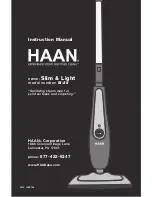
RADICALLY REDUCED
ENERGY CONSUMPTION
The lifecycle studies we’ve done show that a third of the
environmental impact of a vacuum cleaner comes from the
handling and manufacturing of the materials in it. Less than
3 percent is attributed to transportation. The rest is due to
the energy that the vacuum cleaner consumes when in use.
That’s why we’re constantly working to reduce the energy
consumption of our vacuum cleaners. This is most evident
when it comes to the Electrolux Green vacuum cleaners.
Depending on the model, they can save up to 50% energy
compared to an average 2,000 W vacuum cleaner – and get
the job done at least as well.
GET A CLEANER HOME,
AND GREENER WORLD
Isn’t it nice to know that when you take the vacuum cleaner
out of the closet you can be assured of an excellent result.
Electrolux Green vacuum cleaners offer supreme perfor-
mance. They are efficient, quiet, easy to handle and store
– in short, everything you expect from the best of vacuum
cleaners. And they are environmentally responsible. Our
approach to making green vacuum cleaners is simple: you
shouldn’t have to compromise on cleaning performance.
EVEN THE BAG IS GREEN
If you have a model using bags, on most markets you can
act green even when buying the bag. The s-bag® Green
ensures an even level of high performance by the vacuum
cleaner, while the environmental impact is radically reduced.
The bag is made from corn and uses up to 65% less petro-
leum and contributes 68% less greenhouse gases to the
atmosphere than traditional plastic materials.
Green fact: Some of our Green range
models uses 50% less energy than
an average 2,000 W vacuum cleaner.
If you were to vacuum an hour a
week for ten years, you would save
enough energy to burn a 60 W lamp
day and night for 234 days. To put it
another way, you would reduce CO
2
emissions by 294 kg.
Green fact: Some of our Green range
models uses 50% less energy than
an average 2,000 W vacuum cleaner.
If you were to vacuum an hour a
week for ten years, you would save
enough energy to burn a 60 W lamp
day and night for 234 days. To put it
another way, you would reduce CO
2
emissions by 294 kg.
UltraOne_EN-GR_130227.indd 90
2013-03-18 17:30:09



































